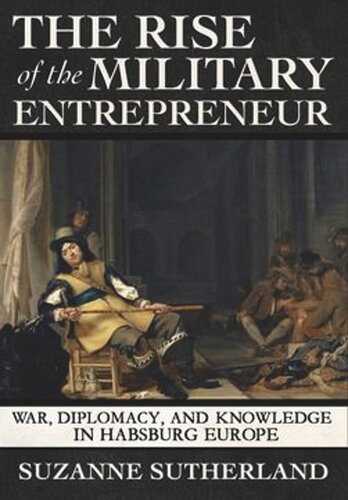

Most ebook files are in PDF format, so you can easily read them using various software such as Foxit Reader or directly on the Google Chrome browser.
Some ebook files are released by publishers in other formats such as .awz, .mobi, .epub, .fb2, etc. You may need to install specific software to read these formats on mobile/PC, such as Calibre.
Please read the tutorial at this link: https://ebookbell.com/faq
We offer FREE conversion to the popular formats you request; however, this may take some time. Therefore, right after payment, please email us, and we will try to provide the service as quickly as possible.
For some exceptional file formats or broken links (if any), please refrain from opening any disputes. Instead, email us first, and we will try to assist within a maximum of 6 hours.
EbookBell Team

0.0
0 reviewsThe Rise of the Military Entrepreneur explores how a new kind of international military figure emerged from, and exploited, the seventeenth century's momentous political, military, commercial, and scientific changes. In the era of the Thirty Years' War, these figures operated on a new scale, traveling rapidly and frequently across Europe using private wealth, credit, and connections to raise and command the armies that rulers desperately needed. Their careers reveal the role played by international networks and private resources and expertise in building, and at times undermining, the state.
Suzanne Sutherland uncovers the influence of military entrepreneurs by examining their activities not only as commanders, but also as diplomats, natural philosophers, information brokers, clients, and subjects on the battlefield, as well as through strategic marital and family allegiances. Sutherland focuses on Raimondo Montecuccoli (1609-80), a middling nobleman from the Duchy of Modena, who became one of the most powerful men in the Austrian Habsburg monarchy and helped found a new discipline, military science.
The Rise of the Military Entrepreneur explains how Montecuccoli successfully straddled battlefield, court, and family responsibilities while contributing to the world of scholarship in an often violent, fragmented political-military landscape. As a result, Sutherland shifts the perspective on war away from the ruler and his court to instead examine the figures supplying force, along with their methods, networks, and reflections on those experiences.